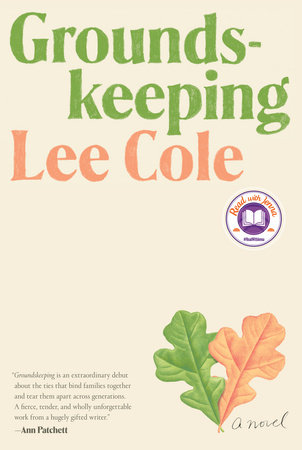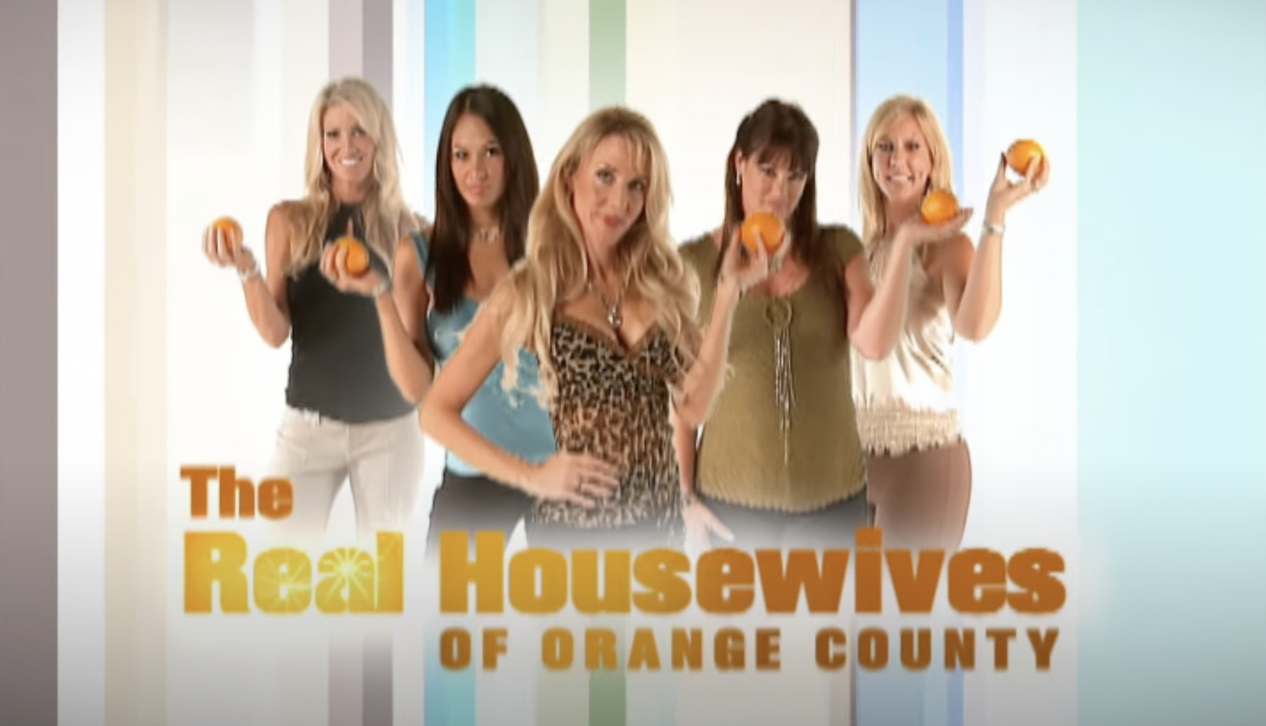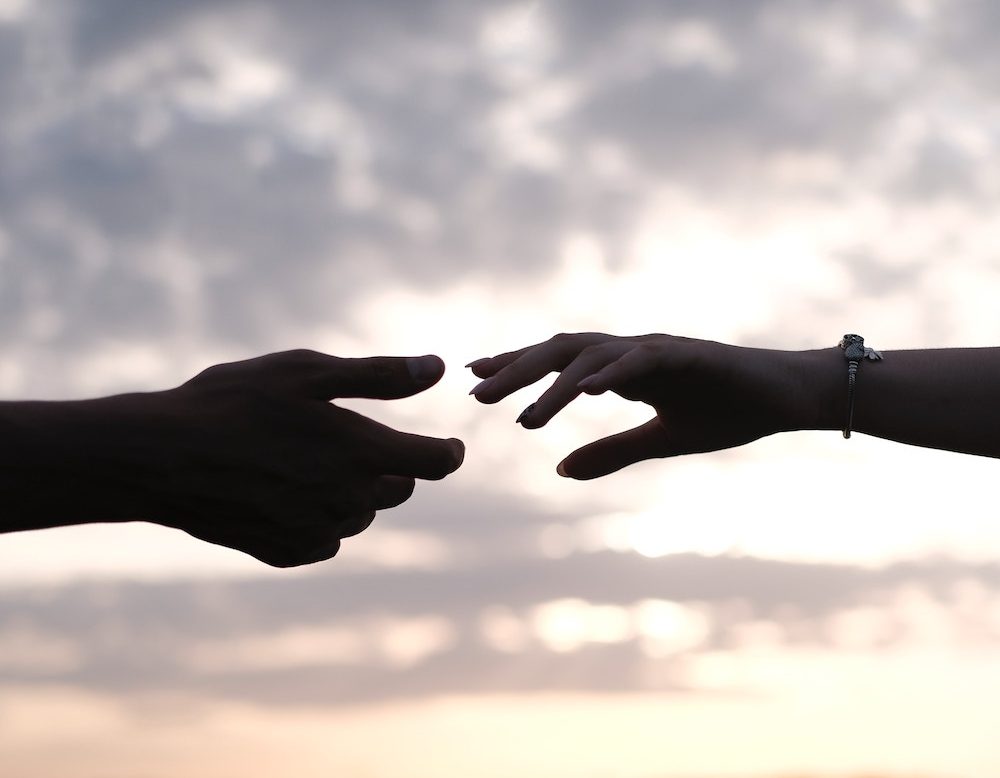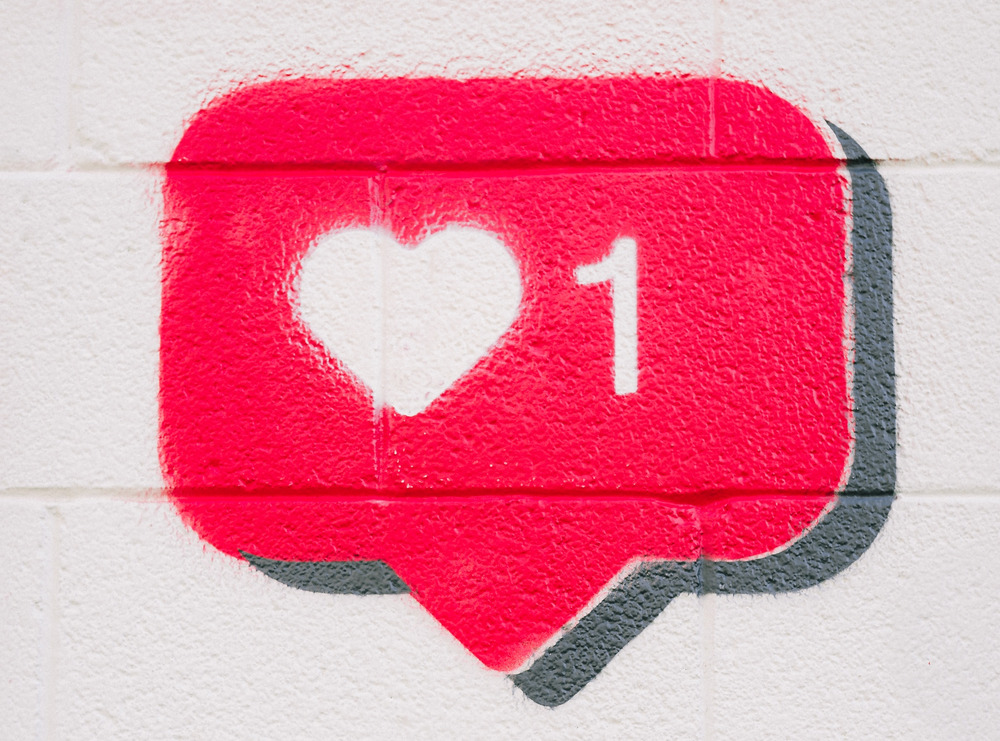Interviews
My Trump-Loving Family is Ruining My Relationship
Lee Cole, author of "Groundskeeping," on writing a novel about how the divide of class, political affiliation, and religious identity impacts a relationship

The novel Groundskeeping takes places in the months around the 2016 presidential election. Aspiring writer Owen Callahan moves back home to live with his Trump-supporting uncle and grandfather in rural Kentucky where he takes a job trimming trees at a local college. In exchange, he enrolls in a free writing course. Over the semester, Callahan falls in love with the writer-in-residence, Alma Hazdic, the daughter of liberal Bosnian immigrants, whose familial support, Ivy League education, and early success seem to illuminate everything Callahan lacks.
As the election looms nearer and the two grow closer, Callahan wrestles with the impact that religion, class, and identity play in an increasingly polarized America.
Author Lee Cole was born and raised in rural Kentucky and is a recent graduate of the Iowa Writing Workshop. Cole and I spoke about growing up white Evangelical, loving and loathing the South, and how the political landscape has shifted since 2016.
Deirdre Sugiuchi: It shouldn’t be revolutionary for a literary protagonist to be a tradesman in 21st-century America, but here we are. Can you discuss writing this character?
Lee Cole: My favorite writers have always been people who toiled away in obscurity, working dead-end jobs, and all the while they were holding on to this dream of writing. Lucia Berlin is one of my favorite writers. She worked a long string of odd jobs, when she died was relatively unknown, and then fortunately in 2015 A Manual For Cleaning Women came out. Tom Jones worked for years as a high school janitor and was writing these gorgeous short stories all the while.
My time working those jobs pales in comparison but I wanted to capture that feeling, because to want to be a writer while doing those sorts of jobs, you almost have to have an insane, demented optimism or something, because everyone around you is telling you to move on with your life and get a day job.
You almost have to have an insane, demented optimism [to be a writer], because everyone around you is telling you to move on with your life and get a day job.
I worked for almost three years at the UPS air hub in Louisville, working nights, unloading freight from planes, because they had a program that would pay for tuition. I worked as a tree trimmer for a year, and a lot of the notes and diary entries that I took ended up finding their way into this project. I don’t know how many writers out there are following the same track. When I was teaching, when my students asked me if they should pursue something like this, I could never recommend my own life trajectory because it involved so much luck. I just put all my chips on this and it panned out.
DS: Your narrator begins this novel with this predicament, which is his love and loathing of the South. Can you discuss writing into that feeling?
LC: I started this book during this period when I was having a hard time fathoming what topic or emotional question or issue could sustain me over the course of possibly years to write a novel. In this moment of desperation, I was like, “Okay, I’m just gonna try to distill it down to one sentence, what is the emotional question or issue that troubles me in my own life? What is the perennial problem that I keep coming back to?”
What I came up with was the first line of the book “When I’m home, in Kentucky, all I want is to leave. When I’m away, I feel homesick for a place that never was.” Everything that came after that was inflicted by that predicament.
A lot of people that I know who come from the South struggle with that, because it’s a place of so many contradictions and so many dark undercurrents and a lot of beauty. It’s a very complicated feeling. All of that reached a fever pitch during Trump’s presidency, and for me, especially around this time last year, after January 6th and the height of COVID, it was, at least with my own parents and my family, pretty tense.
DS: Your narrator comes from a Trump supporting Evangelical family… people who are largely unrepresented in literature, even though Evangelicals are 40% of the population. How do you think that this lack of representation has contributed to the red-blue divide in today’s political landscape?
LC: For lack of a better term, the MFA pipeline tends to deliver writers who are coming from coastal cities. They’ve gone to elite colleges. You’re more likely to have access to the resources to make you have a good writing sample if you’ve gone to an elite college.
It took me a long time to find Kentucky writers, to find writers who I could read their stories and recognize myself in them, or recognize my family members in them.
I was lucky to have grandparents who were always buying me books and people who were reading to me and encouraging me to be creative, but I’m not sure that that’s always the case in the South. I know my parents and some of my family members, and I’m sure this is true of other families too, they don’t want their kids to go to these elite schools, they don’t want them to get too far away from home, because then they might get ideas that run counter to the Evangelical “values” that they were raised with.
It’s hard to say how much representation in literary fiction contributes to the broader cultural conversation at all, because not many people read literary fiction. I think it’s the same forces of exclusivity and people being maybe kept out of certain spaces that is causing resentment on some level, and that contributes to the divide. I don’t know exactly in the literary world how that’s contributing necessarily, except to say maybe that if somebody growing up in rural Kentucky is made to read a piece of literary fiction in school or they go to their library and they pick up a book that’s literary and they don’t see themselves in it, if they don’t see the kinds of landscapes that they recognize, or the kinds of people that they recognize, or the kinds of vernacular that they recognize, then they might be more likely to put it away and not be interested in it. It took me a long time, way after college, to find Kentucky writers, to find writers who I could read their stories or their novels and recognize myself in them, or recognize my family members in them.
DS: One of the main characters identifies as Black and is impacted by actions of the white protagonist. Can you talk about writing his character?
LC: I wanted to write about an insidious form of racism. On the one hand, there’s this sort of overt racial prejudice coming from some of the characters. I wanted that scene to illustrate how someone who superficially is a good progressive and has all of these laudable values is just as capable of this ugly eruption of racism.
I wanted to look at that issue of race from multiple angles in the run-up to the election. I didn’t just want to be writing about the overt racial prejudice of rural folks. I wanted to be writing about how racism plays out among people on the left.
DS: You address stereotypes of the South and how the narrator finds himself falling prey to the same stereotypes about the South, how it is a continuation of his predicament— “My desire to both honor and criticize, to be of a place, and to merely be in it, as a visitor.”
LC: My aspiration as a writer is to try to remember that there are no two-dimensional people in the world and that everybody contains multitudes and that perhaps even for difficult characters, people who I disagree with, they need even more generosity on my part as a writer, so I’m not reducing them or re-charactering them. But in practice, I’m human, and if I’m in a situation where someone is making me uncomfortable or saying something ugly, then it’s hard to live up to that aspiration sometimes. I wanted to be able to write about this narrator who is not this noble person, who’s still able to lapse into these periods of judgment.
When I’m around people in a city, for example, who are criticizing the South or a rural place, my instinct is to say, “Well, hold on. Have you been there, do you know what you’re talking about?” But when I’m around my parents and around my family in the South, and they’re criticizing “liberals” and New York or whatever, I’m saying the same thing like, “Well you don’t know what you’re talking about, you haven’t been there, you don’t know these people.” I find myself defending different people based on the situation that I’m in, if that makes sense.
DS: I liked the way you were playing into that divide.
LC: Trump’s most damaging legacy is that he’s undermined what we think, what is true, what is reality, and it’s so hard too because I know the extent to which people back home are immersed daily in right-wing propaganda. Fox News is on all day. When they’re in their cars, they’re listening to right-wing radio, and then when they go home to surf the internet at night, they’re watching weird anti-vax YouTube videos or whatever. All the time they’re being bombarded by this manipulative propaganda. So this question keeps haunting me.
At what point can I say, “Well, this has gone too far, this is no longer just a political quibble, it’s not something that we can just agree to disagree on.” It’s a constant negotiation.
DS: The narrator watches westerns, like The Magnificent Seven or True Grit or The Searchers, with his grandfather. How did you use Westerns to illustrate certain American narratives?
LC: What’s interesting about a lot of those Westerns is they reinforce this false nostalgia, this American myth of the strong man with questionable morals or methods who can step in to save the little guy. I saw that as a metaphor for what was happening with Trump. But on the other hand, some of those movies, especially The Searchers, are complicated because they are also a critique of manifest destiny or American imperialism, and I don’t think that the people who lionize them, at least on the right, realize that.
I’ve been meaning to watch the Errol Morris documentary, American Dharma, where he interviews Steve Bannon and they watch clips from these old Westerns that are Bannon’s favorite movies. I’d be willing to bet that he likes them because they seem to enshrine these kinds of John Wayne figures.
How anybody like Trump who lived this pampered life with the silver spoon could ever be likened to some of these strong man figures; It’s just such a strange, strange thing to me, why people in rural places whose lives are often difficult and who have these real struggles, how they can identify with him, but that’s a tangent.
DS: Yeah, I struggle with all that constantly. You’re like, “Why? Why? This guy, he’s such a loser and he’s gross in every way, shape, and form. Why is this the hill we’re dying on?”
I’ve been thinking a lot about whether it’s appropriate to be a pessimist or an optimist, at the moment, about the future of the country.
LC: The world view of Evangelical Christianity is fundamentally exclusive. When I think about it, it’s not hard for me to see how somebody who’s this Messiah of narcissism and selfishness would be appealing to people who have been caught up in a religious, political world view that’s based on thinking of yourself as part of this chosen group who are God’s favored people. It leads to such bigotry—us versus them, in-group out-group kind thinking. Even though maybe biographically Trump isn’t very similar to them, he’s giving them permission to feel that selfishness, to feel that they are special or that they are God’s chosen. And some people like to feel that way.
DS: This novel is a novel of 2016, but I found myself just wondering how the character would change. Because the landscape of 2016 is so different from that of 2022.
LC: Yeah, I’ve been thinking a lot about that myself and whether it’s appropriate to be a pessimist or an optimist at the moment about the future of the country. I think that there’s an optimistic note in this book. I still do believe that if we are striving to see people as complicated and containing multitudes, then it would maybe alleviate a lot of these divisions, but it is worth noting that I wrote this book before a lot of the COVID conspiracies came to a head, and before January 6th. I don’t know if I would write it the same way now.









